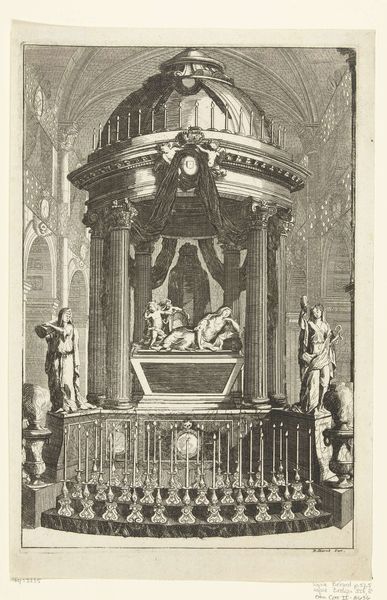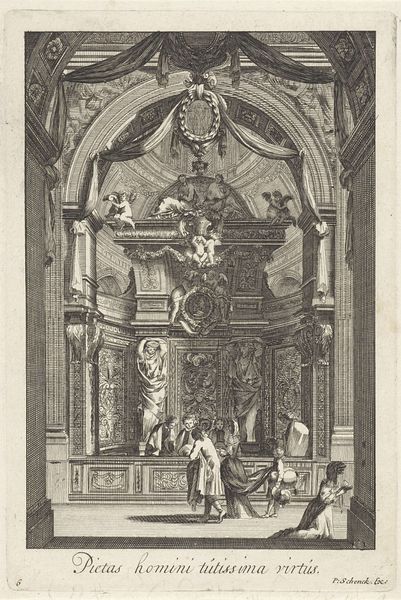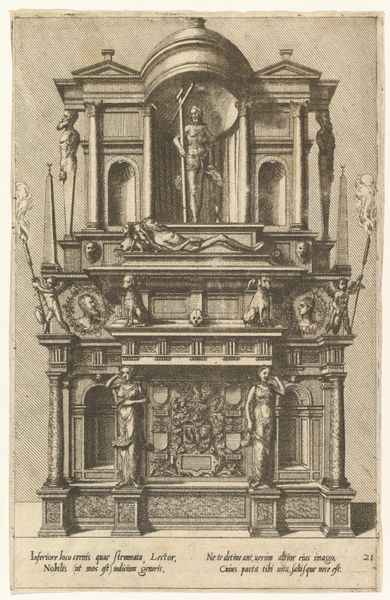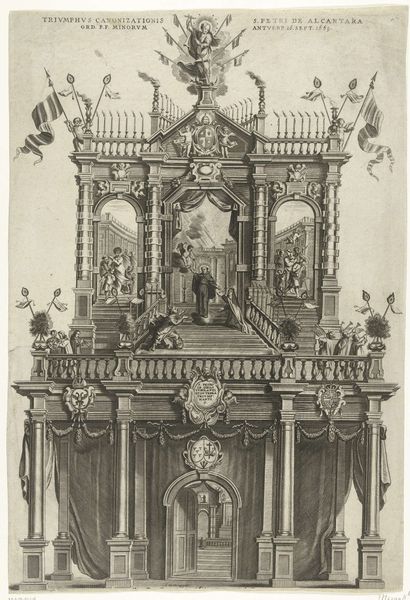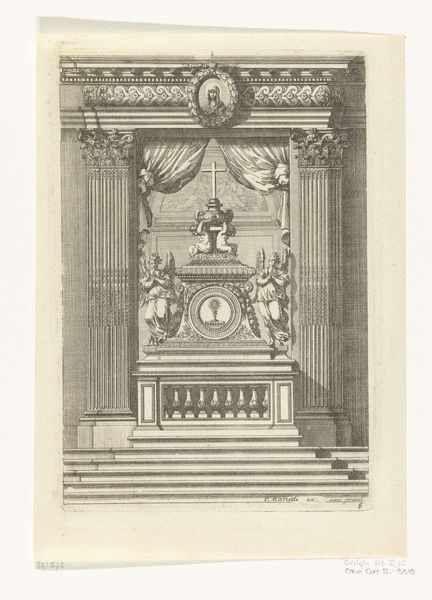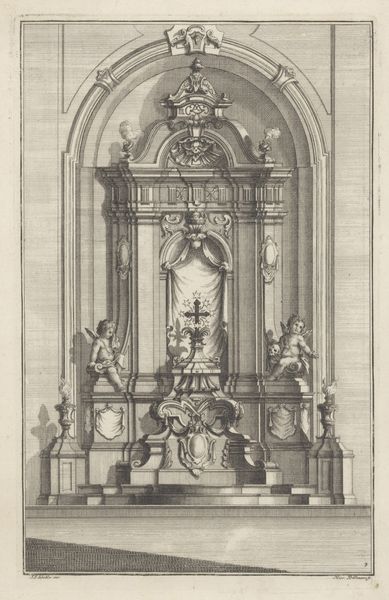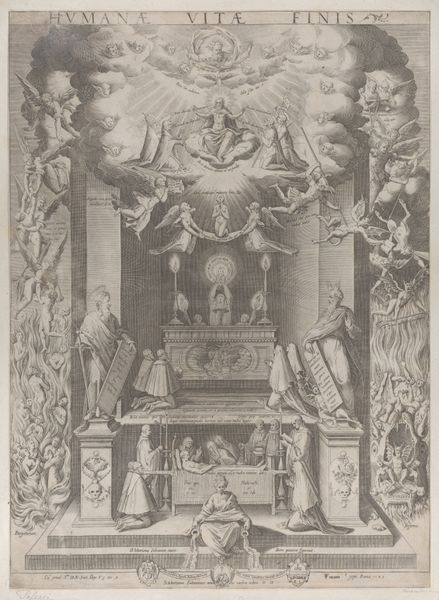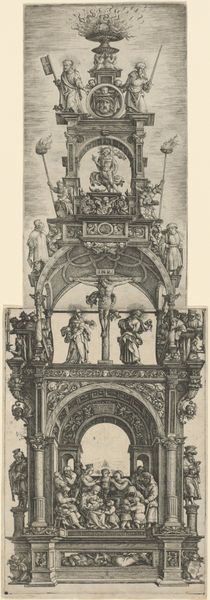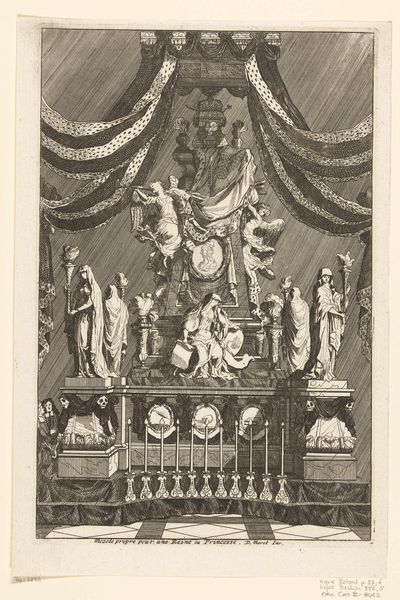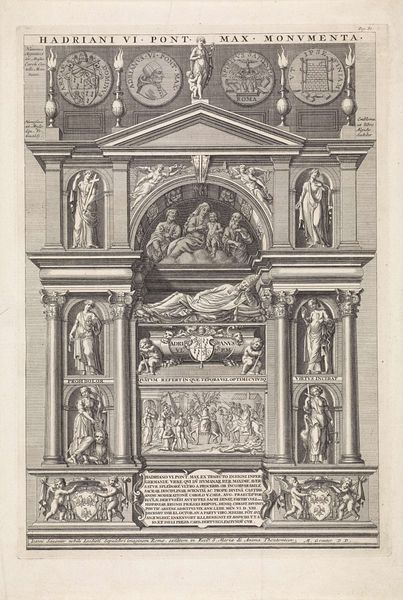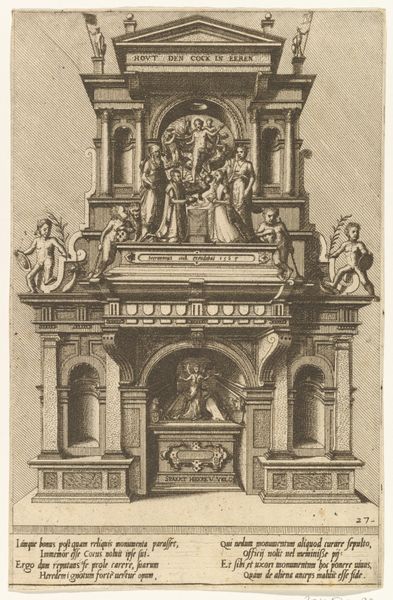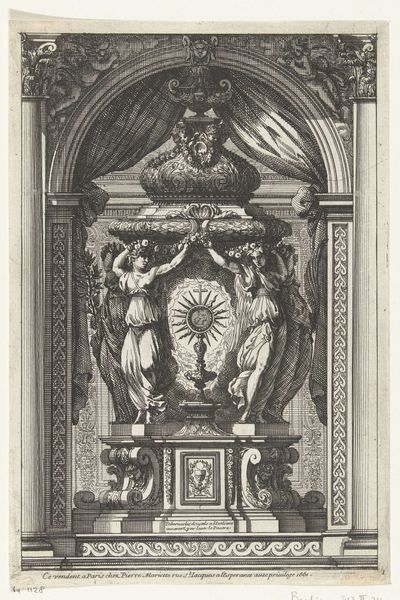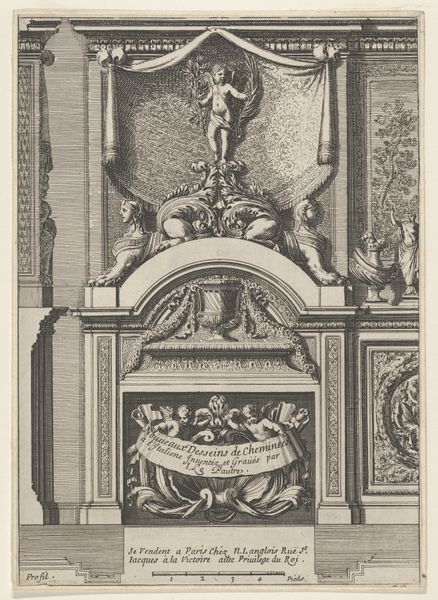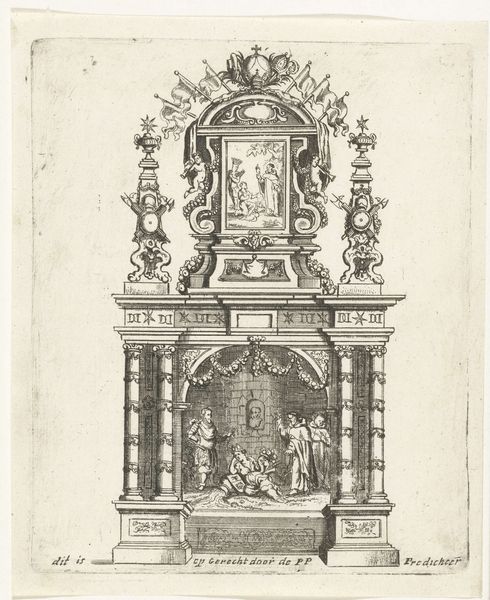
engraving, architecture
#
baroque
#
pen drawing
#
old engraving style
#
form
#
geometric
#
line
#
history-painting
#
engraving
#
architecture
Dimensions: height 286 mm, width 193 mm
Copyright: Rijks Museum: Open Domain
Daniël Marot created this print of a mausoleum sometime between 1683 and 1752. It gives us insight into the relationship between art, power, and the construction of social memory in the late 17th and early 18th centuries. Marot, who worked across France and the Netherlands, was known for interior designs and architectural drawings, often grand and elaborate. Mausoleums, like the one depicted here, were potent symbols of status for elite families. The architecture makes use of classical elements to evoke an association with the Roman Empire. It suggests wealth, power, and dynastic continuity. Note the many candles and the figures in poses of mourning. These were designed to provoke the appropriate emotional responses from the public. Prints like this one circulated widely, helping to spread architectural styles and ideas about how power should be performed. By studying prints, drawings, and other archival sources, we can learn much about the social and political functions of art in this period.
Comments
No comments
Be the first to comment and join the conversation on the ultimate creative platform.
